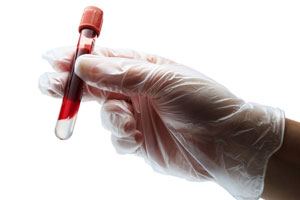Ronald Melnik has been in jail for over 5 years awaiting trial for the shooting death of Reza Payan at a 2011 Fort Lauderdale New Year’s party. Melnik was charged with second-degree murder. His defense attorney is now seeking dismissal of that charge based on evidence that has been destroyed.
Motion to Dismiss
In 2015, Melnik’s defense attorney, David Bogenschutz, wanted to independently test the sample of Payan’s blood because he did not trust the toxicology result. The report showed no foreign substances in Payan’s blood, but witness testimony indicated that Payan had consumed alcohol and marijuana that night. Bogenschutz also noticed a crime scene photo that showed a brass vial that later tested positive for ecstasy was located near Payan’s body.
When he found out that the sample had been discarded, he filed a motion to dismiss. In filing the motion to dismiss, Bogenschutz stated, “Respectfully, this is a constitutional blunder of enormous magnitude and far-reaching consequences.”
Bogenschutz was not the first to bring up the constitutional ramifications of discarding potential evidence. According to court filings, in January 2013, a now retired-Broward homicide prosecutor Brian Cavanagh emailed his colleagues that the new disposal policy “presents a significant ‘destruction of evidence’ problem when the defense wants to assert their right under the discovery rules to have a sample inspected and tested by their own expert.”
Standard Practice to Discard Evidence
At the Broward Medical Examiner’s Office, it is standard practice to discard specimens after one year. Officials say this is to save storage space and based on the limited shelf life of refrigerated specimens. This is also in accordance with the state’s administrative code.
The Broward County Medical Examiner who implemented this one-year standard, Dr. Craig Mallak, said that this is based upon state and national medical examiners’ guidelines. He said, “Even at a year, you’re really rolling the dice…This isn’t a static piece of evidence, this is biology.” Mallak is a physician and former Armed Forces medical examiner. He holds degrees in law and medicine from Creighton University and a bachelor of science degree from Michigan State University in criminalistics.
The Broward County Medical Examiner’s office has previously come under criticism for lack of accreditation from the National Association of Medical Examiners, demands placed on staff that detract from death investigations, and poor management of case evidence.
In the nearby Miami-Dade County, the standard policy is to keep bodily fluid toxicology samples for five years. The Palm Beach County Medical Examiner and treasurer of the Florida Association of Medical Examiners, Dr. Michael Bell, also keeps toxicology samples for five years in cases of homicide and undetermined death. However, Bell also states that the five-year period is “probably arbitrary” and not indicative of the quality of samples that are kept for long periods of time. Bell stated, “There may be drugs present that may be detected, but I think the concentrations are likely not to be accurate…Any interpretation beyond ‘yeah, those drugs are present,’ is probably going to be tenuous.”




